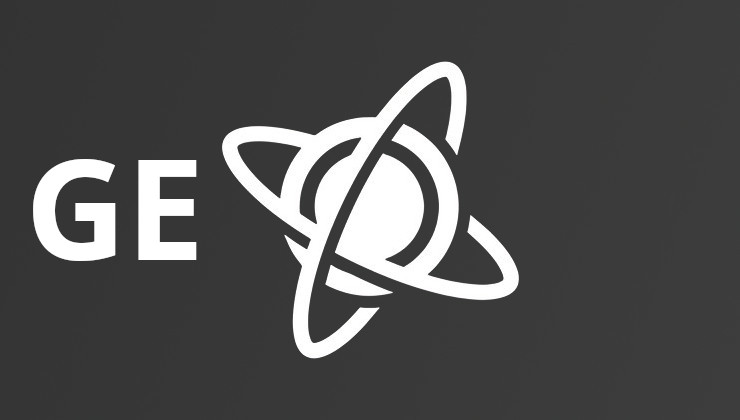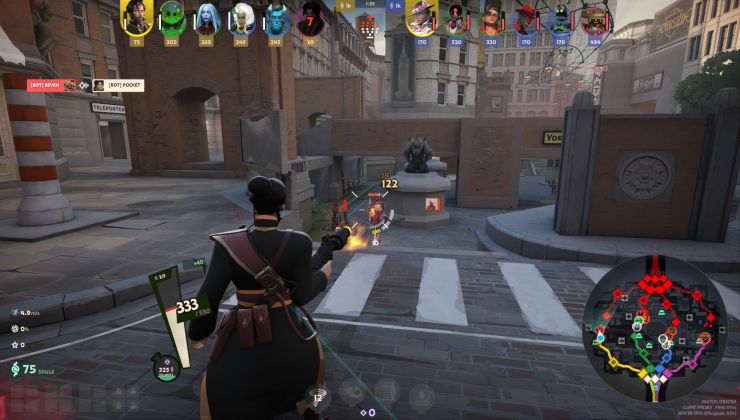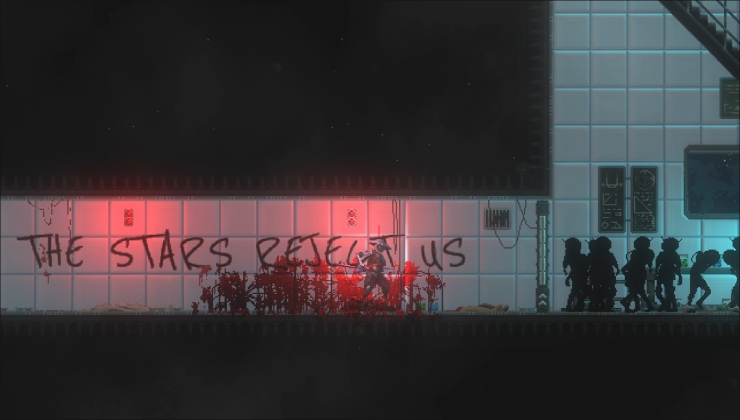Valve announced a change for Steam today that will make things a lot clearer for everyone, as developers will now need to clearly list the kernel-level anti-cheat used on Steam store pages.
In the Steamworks Developer post Valve said: "We've heard from more and more developers recently that they're looking for the right way to share anti-cheat information about their game with players. At the same time, players have been requesting more transparency around the anti-cheat services used in games, as well as the existence of any additional software that will be installed within the game."
Developers with games already on Steam will also need to do this, as it's not just for new games coming up for release, and it is also part of the release process now too. So Valve will be doing checks on games to ensure the notices are there and correct.
However, it's only being forced for kernel-level anti-cheat. If it's only client-side or server-side, it's optional, but Valve say "we generally think that any game that makes use of anti-cheat technology would benefit from letting players know".
Valve's example pictured below:

Some games don't properly remove everything when you uninstall either, with Valve noting this happens with older games, so it's nice to also see this will be noted too.
This should make it a bit easier knowing what to avoid on Steam Deck / Desktop Linux now too, since kernel-level anti-cheat games are usually blocked by the developer from running with Proton.
Valve have done a few rather interesting Steam updates lately like dealing with publisher banner spam, implementing improvements for Native Linux games, actually noting clearly when you go to purchase a game it's just a license and removing the need for individual arbitration.
And also, when we're fully done with the game, all we need to do is delete the prefix and any remnant traces of the anti-cheat crap will get thrown to the bin along with everything else. We really do have it better than Windows peeps in that regard :)
And in many other regards too.
Last edited by melkemind on 31 Oct 2024 at 12:57 pm UTC
Time to boycott those kernel anti-cheat games.We can't play them anyway, so I guess we're ahead of the curve...
This is a good step, of course. But my only real problem with all this anti-cheat stuff is when it's added after release, after many people have purchased the game already, and then it makes it incompatible with Linux. I don't run Windows on my personal computers, and have not for over 22 years. If valve wants us to continue buying Windows games, when they allow the developer/publisher to implement stuff that completely breaks it on Linux, they should enable refunds in these circumstances, regardless of amount of play time or how long ago the purchase was. That's my opinion. And valve shouldn't be the ones to put that bill either, but the publisher who made that decision. It's the least they can do for taking away a game that I am enjoying. If they say, we don't support Linux so you shouldn't have bought it, then you wouldn't have had my money in the first place, so then just give it back and pretend like I never bought it in the first place then.Just keep submitting refund requests with valve until eventually you get a real person. If that fails, open a support ticket. If that fails, social media.
You have been legally prevented from using a product you have paid for with updates which intentionally block your usage, this is no fault of your own and thus you should demand a refund until you get one.
Remember the terms of sale changed *after* you paid your money, not before. Thus, you were unaware this change was going to occur.
Regarding the store page anti-cheat disclosure:
That's a fantastic change. Guess there's no chance to make it a bright red box?
I recommend using the open-source, customizable AugmentedSteam browser extension and committing (or requesting) the feature you mentioned. However, it will only work in your browser, so you might need to change a few of your Steam-related habits.
I personally use it to augment my Steam store experience with price history, tux for Linux icon, text notes on wishlisted (or not) games, and quick extra external links (e.g. PC Gaming Wiki, ProtonDB, SteamDB).
Wish others would follow a similar path lol
You have been legally prevented from using a product you have paid for with updates which intentionally block your usage, this is no fault of your own and thus you should demand a refund until you get one.The problem is that the product that you purchased is a licence to download and execute a piece of software, at the forbearance of the seller.
https://store.steampowered.com/subscriber_agreement/
"Content and Services are licensed, not sold" and your "license confers no title or ownership in the Content and Services".
You don't own the piece of software itself. There is nothing, legally, preventing them from utterly revoking your access at any time and for any or no reason, let alone making any changes to it they wish, regardless of their effects on you.
:-|
So they say, yes. That doesn't necessarily mean it would stand up in court, so they often prefer not to push it too hard.You have been legally prevented from using a product you have paid for with updates which intentionally block your usage, this is no fault of your own and thus you should demand a refund until you get one.The problem is that the product that you purchased is a licence to download and execute a piece of software, at the forbearance of the seller.
So they say, yes. That doesn't necessarily mean it would stand up in court, so they often prefer not to push it too hard.They don't push it too hard because it would be terrible publicity. People only pay current prices because they *think* it's a true purchase, and they think that because storefronts largely treat it as such in practice, in order to maintain that status quo.
But if that tacit agreement broke down and it came to the courts, I don't see that going well. Have they done anything about revoked "permanent access" to movies on streaming platforms?
Maybe you have more hope for the courts than I do. But my point was that if even the most basic right to access anything at all you paid for is in question, and sadly it is, then "an update broke the game on my Linux and this is bad because, legally, I paid for it" is unlikely to have any impact, and certainly not from the legal angle, because it's a strictly weaker argument.
Last edited by Gamall on 5 Nov 2024 at 4:58 pm UTC
I didn't say anything about ownership. I'm aware of that. You are however still being prevented from using something you paid for and you'd be a fool to not fight for a refund in that case. Steam will probably side with you in this case if explained calmly and firmly.You have been legally prevented from using a product you have paid for with updates which intentionally block your usage, this is no fault of your own and thus you should demand a refund until you get one.The problem is that the product that you purchased is a licence to download and execute a piece of software, at the forbearance of the seller.
https://store.steampowered.com/subscriber_agreement/
"Content and Services are licensed, not sold" and your "license confers no title or ownership in the Content and Services".
You don't own the piece of software itself. There is nothing, legally, preventing them from utterly revoking your access at any time and for any or no reason, let alone making any changes to it they wish, regardless of their effects on you.
:-|
Why let the companies walk over you like dirt?
Although honestly recent anti-consumer tactics like this are why I'm slowly moving away from Steam and games which abuse the consumer in general (such as revoking access). They can't keep money you didn't give them.
Last edited by BlackBloodRum on 5 Nov 2024 at 5:49 pm UTC
That too, certainly.So they say, yes. That doesn't necessarily mean it would stand up in court, so they often prefer not to push it too hard.They don't push it too hard because it would be terrible publicity.
Maybe you have more hope for the courts than I do. But my point was that if even the most basic right to access anything at all you paid for is in question, and sadly it is, then "an update broke the game on my Linux and this is bad because, legally, I paid for it" is unlikely to have any impact, and certainly not from the legal angle, because it's a strictly weaker argument.There's no simple answer to this--it depends very much on the country. And in some countries where strict "property" arguments would fail, there would still be applicable consumer protection laws . . . even if something isn't your "property", someone selling you something and then taking it away could still be violating some law.
Last edited by Purple Library Guy on 5 Nov 2024 at 5:53 pm UTC
The question is, how different is that from fraud?That too, certainly.So they say, yes. That doesn't necessarily mean it would stand up in court, so they often prefer not to push it too hard.They don't push it too hard because it would be terrible publicity.
Maybe you have more hope for the courts than I do. But my point was that if even the most basic right to access anything at all you paid for is in question, and sadly it is, then "an update broke the game on my Linux and this is bad because, legally, I paid for it" is unlikely to have any impact, and certainly not from the legal angle, because it's a strictly weaker argument.There's no simple answer to this--it depends very much on the country. And in some countries where strict "property" arguments would fail, there would still be applicable consumer protection laws . . . even if something isn't your "property", someone selling you something and then taking it away could still be violating some law.
"Pay X money for this product" (you pay)
"We're taking the product away from you, but keeping your money. Thanks for the money, sucker!"
I jest, I jest!










 An idiots guide to setting up Minecraft on Steam Deck / SteamOS with controller support
An idiots guide to setting up Minecraft on Steam Deck / SteamOS with controller support
See more from me